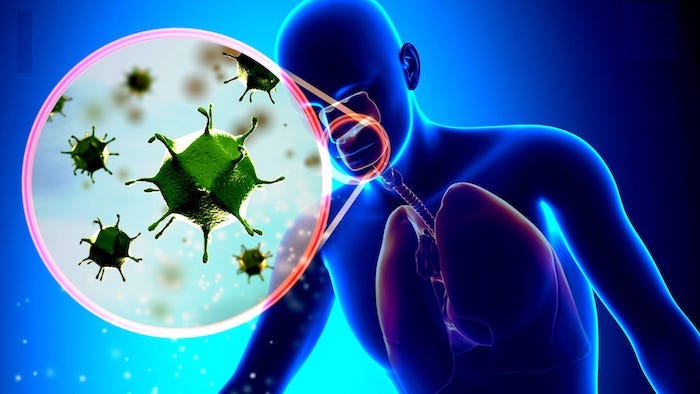
Here are some of the common symptoms of the flu:
Fever
The flu almost always causes an increase in your body temperature. This is also known as a fever.
Most flu-related fevers range from a low-grade fever around 100°F (37.8°C) to as high as 104°F (40°C).
Although alarming, it’s not uncommon for young children to have higher fevers than adults. If you suspect your child has the flu, see their doctor.
You may feel “feverish” when you have an elevated temperature. Signs include chills, sweats, or being cold despite your body’s high temperature. Most fevers last for less than 1 week, usually around 3 to 4 days.
Cough
A dry, persistent cough is common with the flu. The cough may worsen, becoming uncomfortable and painful.
You may sometimes experience shortness of breath or chest discomfort during this time. Many flu-related coughs can last for about 2 weeks.
Muscle aches
Flu-related muscle pains are most common in your neck, back, arms, and legs. They can often be severe, making it difficult to move even when trying to perform basic tasks.
Headache
Your first symptom of the flu may be a severe headache. Sometimes symptoms, including light and sound sensitivity, go along with your headache.
Fatigue
Feeling tired is a not-so-obvious symptom of the flu. Feeling generally unwell can be a sign of many conditions. These feelings of tiredness and fatigue may come on fast and be difficult to overcome.
Influenza is a serious virus that leads to many illnesses each year. You don’t have to be young or have a compromised immune system to get gravely ill from the flu. Healthy people can get sick from the flu and spread it to friends and family.
In some cases, the flu can even be deadly. Flu-related deaths are most common in people ages 65 and older but can be seen in children and young adults.
The best and most efficient way to avoid the flu and prevent spreading it is to get a flu vaccination.
The flu vaccine is available in the following forms:
- injectable shot
- high-dose injectable shot (for those over age 65)
- intradermal shot
- nasal spray
The more people that get vaccinated against the flu, the less the flu can spread. It also helps with herd immunity, helping to protect those who can’t get the vaccine for medical reasons.
Vaccination can also help lessen the severity of the illness if you do end up getting the flu.
How does the flu shot work?
To make the vaccine, scientists select the strains of the flu virus that research suggests will be the most common in the coming flu season. Millions of vaccines with those strains are produced and distributed.
Once you receive the vaccine, your body begins producing antibodies against those strains of the virus. These antibodies provide protection against the virus.
If you come into contact with the flu virus at a later point, you can avoid contracting it.
You may get sick if you end up coming into contact with a different strain of the virus. But the symptoms will be less severe because you had the vaccination.
Who should get the flu shot?
Doctors recommend that everyone over the age of 6 months receive the flu vaccine. This is especially true for people in high-risk categories like:
- pregnant women
- children under age 5
- people aged 18 and under who receive aspirin therapy
- people over age 65
- people whose body mass index is 40 or higher
- anyone working or living in a nursing home or chronic care facility
- caregivers to any of the above
- American Indians or Alaska Natives
- anyone with chronic medical conditions
Most doctors also recommend that everyone gets their flu vaccine by the end of October. This way your body has time to develop the right antibodies before flu season kicks into gear.
Even if you don’t get the flu shot by October 31, it’s not too late. Even if it’s well into flu season, it’s always helpful to get the flu shot.
It takes about 2 weeks for antibodies to develop against the flu after vaccination.
The Centers for Disease Control and Prevention (CDC) believes that both flu and the new coronavirus, COVID-19, will be spreading this year. Because of this, the vaccine will be more important than ever.
Precision Pain Care and Rehabilitation has two convenient locations in Richmond Hill – Queens and New Hyde Park – Long Island. Call the Richmond Hill office at (718) 215-1888, or (516) 419-4480 for the Long Island office, to arrange an appointment with our Interventional Pain Management Specialist, Dr. Jeffrey Chacko.















